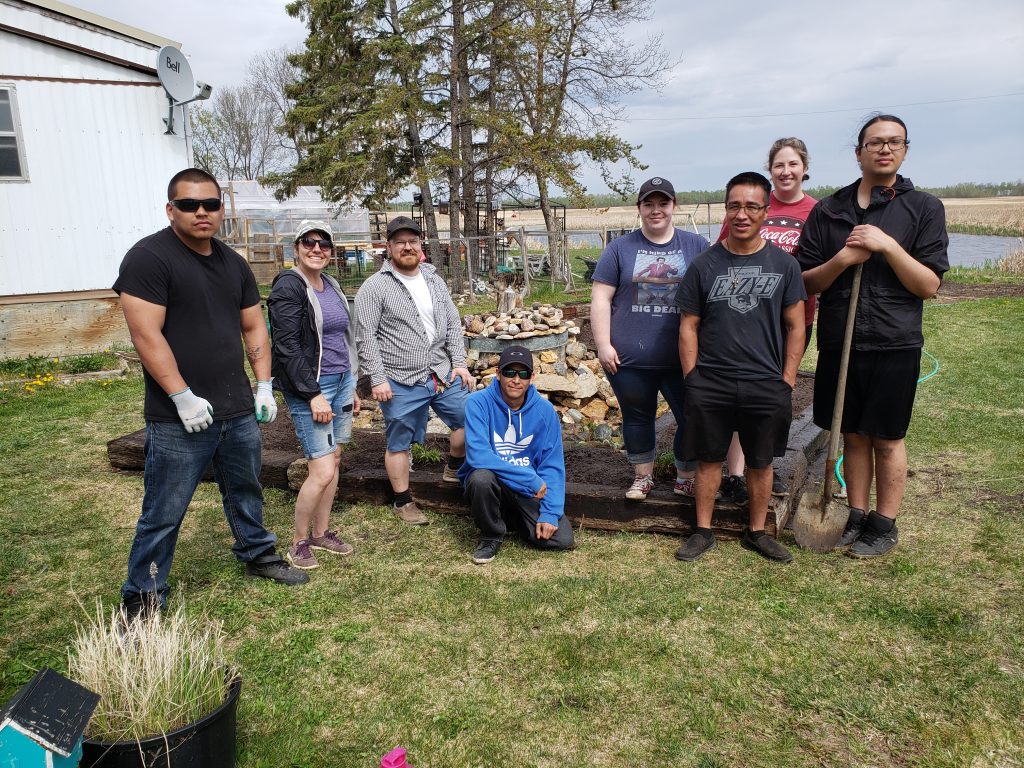A CareerWise “In The Know” report for career professionals working with ex-offenders caught my eye and I wanted to share one of Saskatchewan’s projects that is having great success. The Bridges program works with high-risk-to-recidivate (reoffend) clients. Its success comes from the position that offenders (especially high-risk offenders) need a different path than other multi-barrier clients – a recognition developed through years of trial and error.
Bridges came out of a community project for provincial offenders developed 10 years ago by the Ministry of Corrections and Policing, the Ministry of Immigration and Career Training, and Catholic Family Services. To help you understand how the program helps clients make the cognitive changes necessary to build a successful employment pathway, I have to introduce you to one of its biggest champions. Meet Carlin Gall – program co-ordinator, director, instructor and the face of Bridges’ creativity.
It takes time
Bridges provides individual counselling for those who think they are ready to work; it also offers a 10-week course on Employment Readiness for those who know they need additional skills. After the course is completed, Bridges can offer assistance and maintenance for up to a year.
Carlin has found that most Bridges clients are not ready for employment – even if they think they are. Frequently, as the 10-week program is coming to an end, Carlin sees self-sabotage; the fear of change overtakes his clients. However, he guides, coaches and encourages clients who believe they are ready. Once they find a job, he assists with maintenance and support, but often finds they soon slip – they lose their employment and need to start the process over. The second (or third) time, they are usually ready to accept more guidance, including a more thorough and successful walk-through of the stages to employability.
These challenges and setbacks are a normal part of the process. Some corrections literature/reports suggest that this particular client group needs four months to two years of pre-employment before they are ready to enter the workforce independently and full time.
Recognizing this reality, Carlin’s focus is often on guiding clients to build skills and helping them explore further education options, rather than searching for a transitional job. In the classroom, discussions occur about labour practices, career interests, apprenticeships, goal-setting and much more.

Developing essential skills
Volunteer work is built into the program, whether this be working at a community garden (with the bonus that everyone who works gets to reap the harvest) or assisting with renovations in low-income housing projects. The class has also been able to assist in running a confectionery stand at community events, allowing them to interact with customers, work as a team and see events. This volunteer work helps clients get experience in customer service and sales, and develop construction-related skills such as basic painting, tool care and carpet laying. However, Carlin recognizes that these are not as nearly important as the employability skills (a.k.a. “soft” skills) they develop – working together, critical thinking and communication – and the resultant rise in their self-esteem and self-worth.
Volunteer experiences can also help clients develop a sense of connection to their community. Carlin has arranged to have musically inclined clients perform in local cafés and organizes benefit nights where clients can perform. Past clients return to be involved in these events. Bridges’ musical talent has expanded to such an extent that the next performance is going to be at a local hall. Carlin has broadened the view of clients by involving them in community events and social activities.
Wraparound supports
Clients may experience barriers beyond lack of work experience that could inhibit their success. For instance, Carlin knows a person can’t attend class or do volunteer work if they aren’t properly nourished, so Bridges partners with a local restaurant to teach clients basic food-preparation skills. Money raised from assisting at community events is used to buy food and other supplies for the classroom. Clients experiencing financial challenges may also qualify for a training allowance.
The dedication of the Bridges staff, guided by Carlin, ensures clients get help outside of the classroom; for instance, help with housing, arranging to get methadone, identification, funding, etc. Under the guidance of Catholic Family Services, counselling is immediate – not a day or two later – after a crisis occurs, whether it be related to addictions, domestic issues or anything else.
Building connections
Carlin cares about his clients, but more importantly, he instills in them that is their job to care about themselves. He uses a multitude of ways to remind them to show their best side and to be proud of what they can accomplish. For instance, in the building’s washrooms, the mirrors have signs on them that state, “This is what your future employer sees … SMILE!”
Carlin started a Facebook page for Bridges clients as well as a page for friends and family of Bridges. Many clients from past years reach out to Carlin through Facebook requesting assistance and also to share their successes and triumphs. Past clients’ successes provide opportunities for present and future clients. Some former clients who are now in supervisory employment roles are willing to accept Bridges clients for career exploration opportunities. Frequently, previous clients come in and share their journeys in classroom presentations.
Partnerships have also been forged with educational institutions, as they have found Bridges graduates are ready for further education. Successful Bridges clients are able to move to the top of the waiting lists.
A team effort
Carlin is modest and indicates that he has developed his practices based on the learnings of others. He quickly states that he is part of a team, and his colleagues Alison Garson and Rachelle Gitzel are equally responsible for Bridges’ success.
Thanks to the dedication of all involved, what Bridges has made clear is that tailoring employment counselling to the unique needs of ex-offenders – including skills development, community-building, patience with setbacks and wraparound supports – is crucial to their success.
Note: The framework for Saskatchewan’s Provincial Corrections Employment Program is forged from a white paper called Integrated Reentry and Employment Strategies along with best practices involving the Employability Dimensions (based on work by Norman Amundson) and The Psychology of Criminal Conduct by D.A. Andrews and James Bonta.




